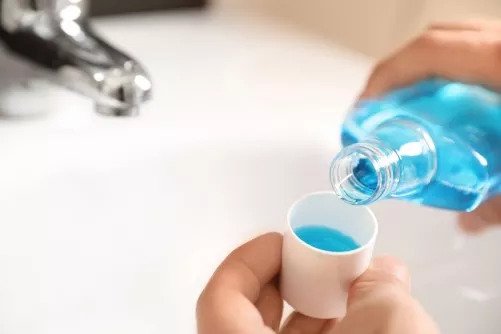Readily available dental mouthwashes have potential to destroy the lipid envelope of coronaviruses and inactivate virus in the mouth and throat, experts say.
Research suggests that the salivary glands and throat are a major source of coronavirus replication and that a high viral load in the mouth likely contributes to disease spread in early stages of infection. Studies have also demonstrated that substances that disrupt the fatty lipid envelope that holds the virus together—such as soap and alcohol—inactivate the virus.
In a new Evidence Review of more than 100 articles, researchers examined ingredients commonly found in oral rinses—including ethanol, chlorhexidine, cetylpyridinium chloride, hydrogen peroxide and povidone-iodine—and weighed their potential to disrupt the lipid envelope of the SARS-CoV-2 virus and reduce viral spread. The findings, published in Function, conclude that there is an urgent need to test the effectiveness of these agents in clinical trials.
“Notably the lipid envelope does not vary when viruses mutate,” added lead author Valerie O’Donnell, PhD, of Cardiff University in Wales. “This means that if this approach can inactivate coronaviruses, the strategy—if effective—should still work the same towards new strains.”
The article was co-authored by an international, multidisciplinary team of researchers with expertise in lipid biology, virology and antimicrobial therapy.
Source: American Physiological Society (APS)

Be the first to comment on "Mouthwash Should be Evaluated for its Ability to Inactivate Coronavirus"